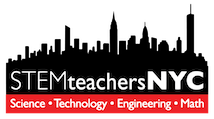The November 14 meeting of the Harnessing AI for Educators working group focused on exploring the practical applications of AI tools like ChatGPT for teaching and learning. Participants delved into the use of chatbots for generating practice problems, creating lesson plans, unit development, and offering feedback on student work. The discussion emphasized leveraging AI as a support tool while exercising caution and verifying the accuracy of AI-generated information. Additional topics included AI’s potential for enhancing student writing, crafting recommendations, and designing educational resources like rubrics and stories.
One of the working group members shared a chatbot designed to generate Biology Regents practice questions aligned with New York State Learning Standards and Next Generation Science Standards. This was a highlight of the meeting and sparked discussions on how chatbots could assist in lesson planning and curriculum development. Participants also brainstormed ways to create and refine chatbot examples for classroom use, offering ideas on prompt engineering and integrating AI into teaching workflows.
The group also explored the broader use of AI for planning, instruction, and grading. They shared successes in using Perplexity AI to design a biotechnology mini-course, and employing AI to plan chemistry units and draft recommendation letters. The group also highlighted the potential for AI tools to streamline grading and feedback processes, including the use of SwiftScore and Turnitin’s GradeScope. Members did express concerns about misuse of AI by students, with one member sharing insights on using Winston AI for detecting AI-generated content in student submissions, prompting broader discussions about ethical considerations.
Looking ahead, the group outlined plans for upcoming meetings. In December, an additional, user-friendly chatbot platform will be shared with the group. All members, whether or not they are presenting resources, are encouraged to consider classroom-specific chatbot applications beforehand. The group remains committed to exploring how AI can enhance education while addressing challenges related to its implementation.
Note: summaries are written with aid of AI text software

